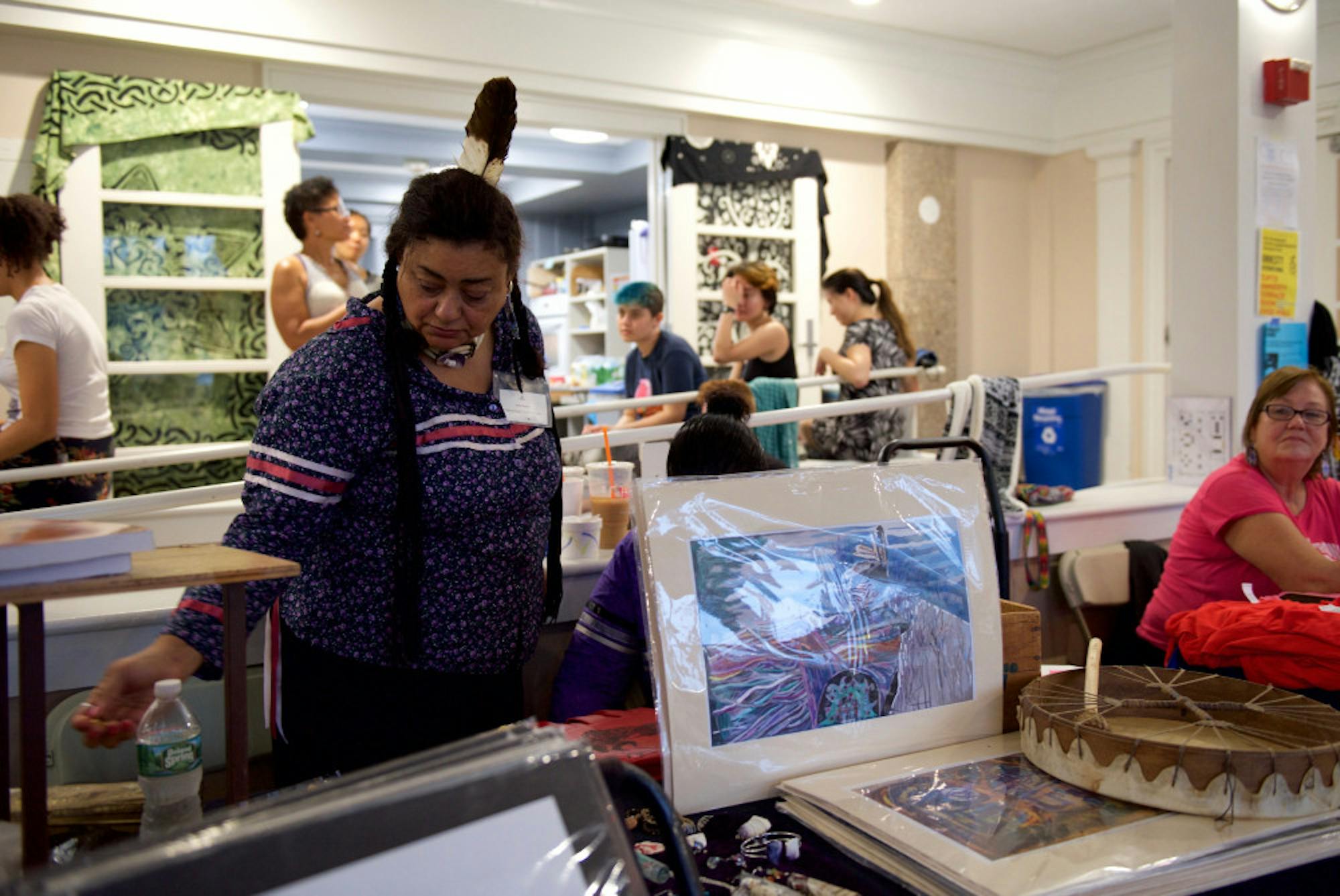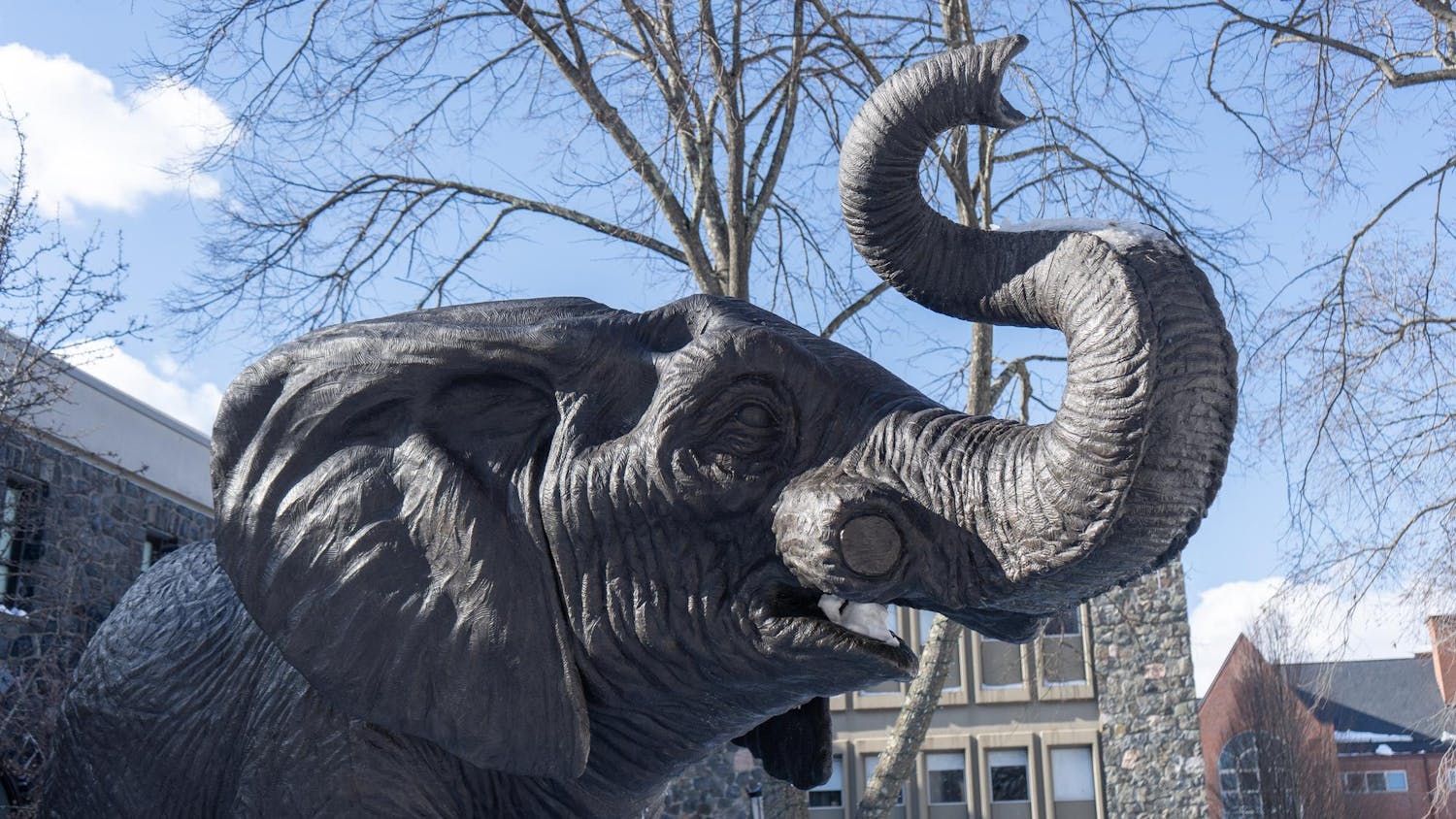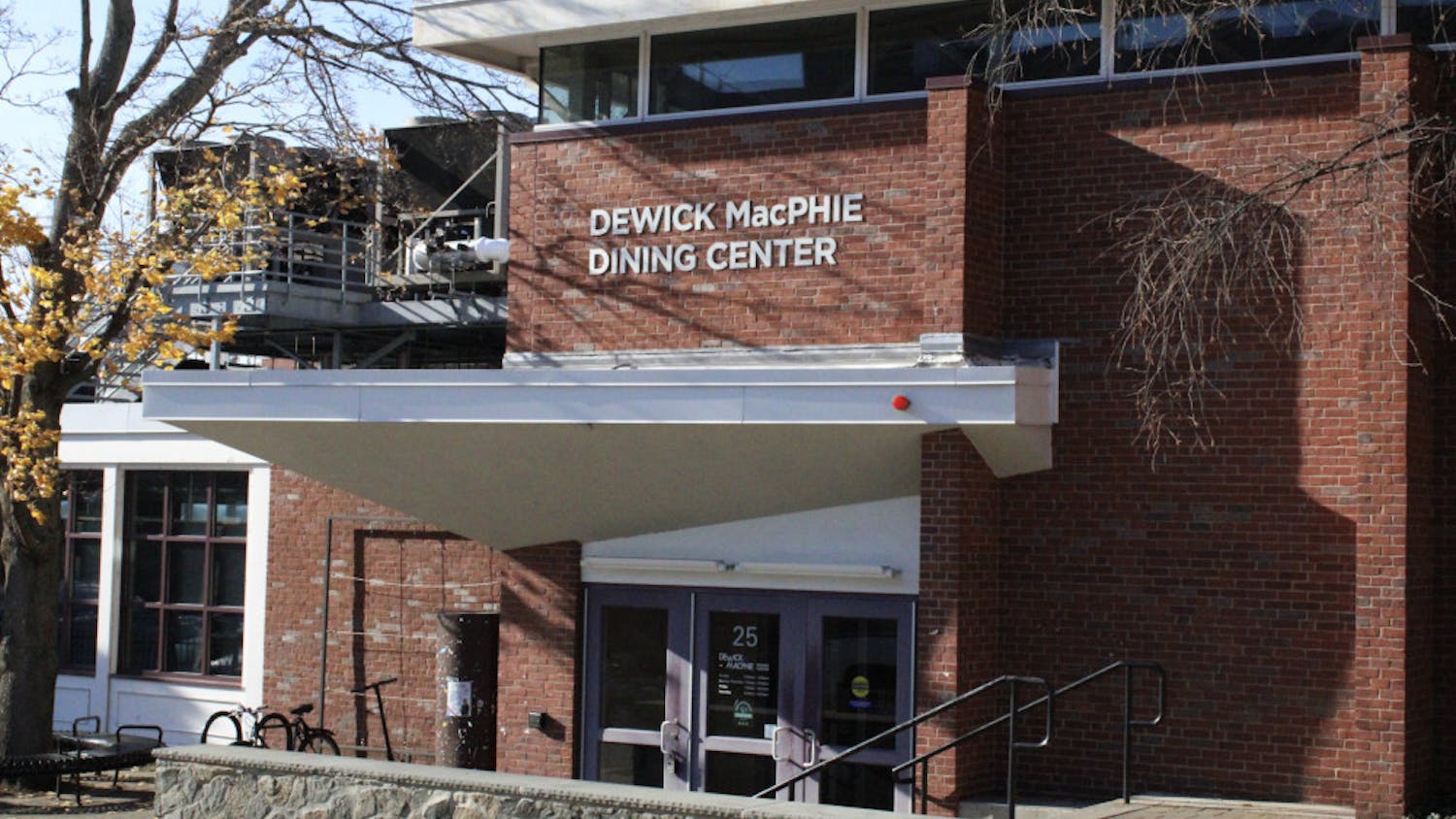Although the Indigenous Peoples Day celebration at Tufts took place on Oct. 9, the momentum for continued action and recognition of indigenous history continues among the indigenous students, professors and allies at Tufts.
Tufts Community Union (TCU) President Benya Kraus, TCU Vice President Anna Del Castillo and junior Parker Breza are part of the Tufts Indigenous Peoples Day Movement Planning Committee and have been working to promote more changes at the university level.
“We’re not an official student group or any major organization, but we’re students, mostly made up of native and indigenous students and then a couple allies, who are really focused on making sure that it’s not just a name change," Breza said. "[We are] looking at other places within the university that we need to make changes to [in order to] recognize, honor and work towards decolonization with indigenous communities."
The Arts and Sciences, and Engineering schools changed the name of Columbus Day to Indigenous Peoples Day after it passed a faculty vote in 2016. The first Indigenous Peoples Day celebration on Tufts campus followed in the fall.
“After the faculty voted to change the name to Indigenous Peoples Day here at Tufts, we contacted grad schools from the entire university and as of now, every grad school except for the dental school has passed it,” Del Castillo said.
In addition to the name change, these students hope to enact more changes this year as part of an ongoing process to focus more on indigenous peoples history.
“One of the things we’re working on this year is our continued push for an indigenous studies minor, and we hope that will be within the race, colonialism and diaspora studies consortium,” Breza said.
Ethnohistorian and Project Coordinator for the Winter Center for Indigenous TraditionsJohn Moody described the benefits of offering indigenous studies programs at an institutional level.
“I think it’s crucial [that] every institution, including Tufts, have an active native studies program … departments that are involved in anthropology, history and all these should not just be doing the conventional histories of the world,” Moody said. “I think Tufts is pretty good about that from my understanding, but I think there’s always much more to be done.”
Jami Powell, a lecturer atTuftsand a citizen of theOsage Nation, is teaching the courseIssues in Native American and Indigenous Studies this semester and plans to teach Indigenous Ethnography in the spring. Building upon her own experiences, she described the importance of developing a native studies program to encourage Native American students to come to Tufts.
“When I was looking into schools, one of the things that was really important for me, as an Osage student, was to attend a university where there was some kind of community or support system,” she said. “So I think that the presence of some kind of a formal, Native American studies department or support service would lead to more NativeAmerican students wanting to come to Tufts University.”
Kraus, DelCastillo and Breza also hope to see more Native American students at Tufts and are working toward improving recruitment and retention of these students.
“If you go to the diversity report for Tufts, there are less than one percent of native students on this campus, so [to encourage] more native students to come to Tufts, I think that means we need more resources for [these] students,” Del Castillo said. “That’s another part of the movement: working with admissions or administration to push for having more native and indigenous students at this school.”
According to Powell, we can look to other universities for examples of similar programs and their implementations.
“There are definitely a number of programs in the area that have demonstrated how to do this," Powell said. "Harvard has the HUNAP — the Harvard University Native American Program — and they have a dedicated director of the center who works with students constantly, and they have funds to bring Native American speakers to campus on a regular basis.”
There have already been discussions focused on getting Native American speakers to come to Tufts, according to Powell.
“I most recently had a conversation with [Breza] about getting a series of speakers to come to campus and talk about issues,” she said. “I think we decided that we might call it ‘Beyond Standing Rock.’ Like a Native American studies speaker series, since there aren’t as many classes offered.”
Moody also emphasized the importance of having speakers to educate people on native issues.
“It’s a pretty strange time, so you really want things to change, and Tufts I think can be part of all that," Moody said. "Educational institutions, including Tufts, play a vital role in educating not only the people that are on campus but educating the world, setting better examples for the future that will hopefully get us all on track to a better life."
Moody described the necessity of recognizing native populations such as the Abenaki nation, whose citizens live in parts of theNortheastern United States. He outlined the hazards of ignoring these communities and their histories.
“If there’s danger, its of racial bias against living native children, people,” he said. “To refer, for instance, to the Abenaki people or native people in general in past tense is very common. And actually, I think in the discussions we had with the folks at Tufts earlier this year, the initial discussion was in the past tense and we essentially said to [them]: ‘Look, there’s nothing past tense about the Abenaki people [or] the Abenaki nation.’”
Kraus, Del Castillo and Breza also emphasized the importance of promoting conversations in clubs and student organizations. Last fall, Tufts Mountain Club (TMC) was criticized in a Tufts Observer article for their apolitical status. Breza said that TMC subsequently reached out to him for guidance in promoting positive change.
“Last year, I met with a lot of TMC [executive board] members with a lot of changes that I thought they should make,” Breza said. “Some of those have been started or completed, and others are still being worked on or need to be worked on. I also met with the TMC president this year, Maxx Grossman, who was really humble about wanting to help out in whatever way possible ... and I think for the first time, [TMC] really recognizes the importance of taking political stances, which was one of the main problems.”
Grossman and Vice President Julia Depp informed the Daily toward the end of September of some of the initiatives taken by the club.
“We will be having a book club this semester open to the general Tufts community and will be reading a book specifically about the violent effects of colonization on indigenous women. We have encouraged everyone on our executive board and will be encouraging the entire TMC community to volunteer to help with the on-campus Indigenous Peoples Day event,” they told the Daily in an email.
According to Breza, Del Castillo and Kraus, all clubs on campus share the responsibility to educate their club members. Breza and Del Castillo discussed other student organizations that have begun taking steps to promote conversation.
“Last year, I met with A.L.A.S., which is the Association of Latin American Students at Tufts, around this time,” Breza said. “They wanted to have some speakers from [the Indigenous Peoples Day movement] to talk about the connection between latinidad and indigeneity and talk about the push and the movement at Tufts.”
Del Castillo attested to a similar intent with BLAST (Bridge to Liberal Arts Success), a program that prepares first-years who are first-generation college students, from underresourced high schools or part of a college access agency for the transition to Tufts.
“The BLAST scholars have also offered support and help … and continued to publicize our [Indigenous Peoples Day] event,” Del Castillo added.
Breza remains hopeful that the Indigenous Peoples Day Movement at Tufts will continue as it gains more university support from both students and administrators.
“When we began this movement, there were a lot of administrators that were really resistant, who have now come to financially support the movement," he said. "I think that the university support that we have received for the Indigenous Peoples Day celebration is a good sign, and I’m hopeful that this will continue and that this will spread to other areas of the university.”
Students and faculty continue indigenous peoples initiatives, promote acknowledgment of indigenous history

Traditional food, dance, music and artwork are presented to students during Tufts Indigenous Peoples Day Celebration 2017 in Carmichael Hall on Oct. 9.





